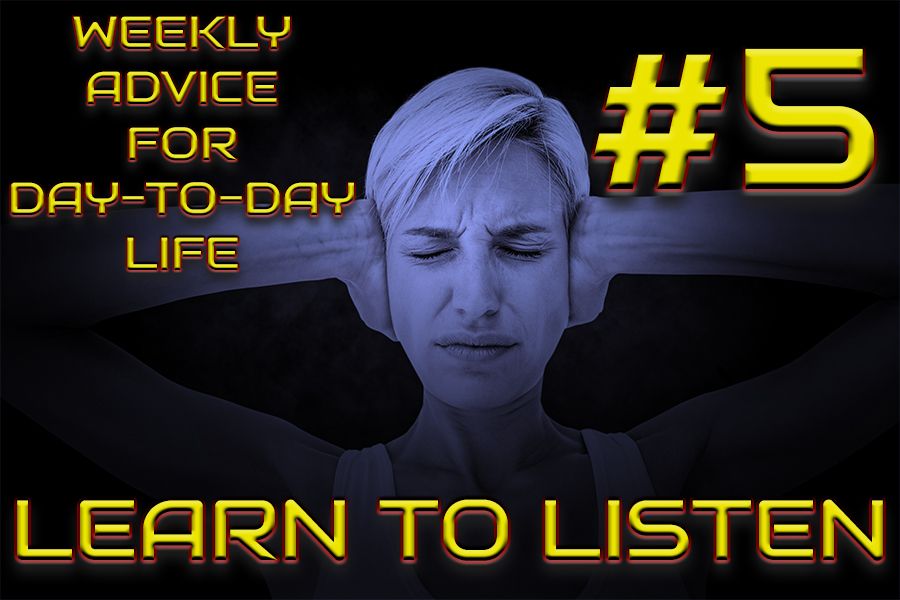
If the recent events in Charlottesville, Virginia have shown anything about the current state of our society, it's that so precious few of us ever care to listen. We don't care to hear out another side of a debate, we don't care to hear any other sides of a story, and we sure as hell don't care to hear anything that's getting yelled at us.
And why should we? In a culture that enables and encourages us all to get up on our soapbox and express to excess, why should we bother to hear anyone else's opinion that doesn't agree with our own? We can simply block, mute, switch off, delete, or otherwise shout-down anything we don't like to little consequence, so where is the incentive to actually listen?
The most difficult thing about the principle of free speech is that it's application must be universal among individuals, otherwise it will always be at risk of being violated. This means that people, either because they actually believe it or simply pretend they do to get a rise out of others, will say things that are relatively upsetting.

The question is, "What is the right, healthy thing to do when confronted with a situation of someone saying something I don't like?" The simplest answer, sometimes, can be to just walk away from the situation and ignore what is being said. Especially in cases when a person or group is attempting to get a rise from you, the best thing you can do is to understand that that is what their intent is and walk away.
In other cases, you might find that confronting the situation and engaging the person(s) to be a better solution. This might be if you find that a particular subject matter is being brought up repeatedly that you feel you can intellectually benefit from with a calm, civil debate. It might also be beneficial if you find that someone continuously states something factually inaccurate or uses an argumentative fallacy to justify what they're saying and want to point this out.
If you find that, even in your attempts to keep the conversation civil, the discussion is gradually getting heated, you may want to back off until they have calmed down. Alternatively, you can gamble on the other person's personality type and either assert or placate to them, in order to calm them down enough to continue on. At this point, what you choose to do is highly discretionary and relies on the particulars of the situation you're in, as well as how good you are at reading others and speaking to them.

If you find that either you get swept up in shouting and ad hominem attacks while debating or that you are the one who resorts to those tactics first, there are a couple of things that you need to ask yourself. The first being, "What topics, words, phrases, or tones of voice cause me to react in this way?" The most important thing you can do in altering behavior and conditioning yourself to react in a certain way is to understand the catalysts for that behavior.
Once this has been adequately identified, the next step is understanding why these things cause you to react in this way. More often than not, these things stem from the way that one is raised as a child and particular traumatic events that shape one's personality. For example, if a child is raised in a home where they witness the parents arguing intensely and argue with/discipline that child in the same manner, the child can either grow up to be highly combative and engaging when it comes to discussion or they can become highly submissive and avoidant.
The final step is to come up with coping mechanisms to allow you to relieve any anxiety or stress you may feel whenever you're thrown into heated discussion. This allows you to continue exposing yourself to these situations in a relatively healthy manner while learning how to reinforce the behavioral and cognitive changes you need to make. For this, I would strongly recommend working with a counselor or therapist for this to succeed, because it would otherwise require an intermediate/advanced knowledge of behavioral and cognitive psychology techniques, as well as an incredibly strong willpower to do so.

The point that I'd like to drill home is that the choice to listen to, engage with, and whether or not you let yourself get upset at what someone else is saying depends on you. I've tried to avoid this word throughout this article so that the message I was conveying wouldn't get tainted, but if you get "triggered" by what someone says (be it an actual triggering of an anxiety attack stemming from PTSD or just getting upset) you should limit the kinds of conversations you have until you've worked enough with a psychologist to overcome your trauma.
Saying that you're "triggered", whether you actually suffer from PTSD or not, isn't an excuse to throw yourself into conversations and get yourself worked up into a rage. Not only do you make yourself and those you associate look like infantile degenerates that can't handle an adult conversation, but you're doing psychological damage to yourself every time you introduce yourself to scenarios that YOU KNOW is going to get you anxious and stressed out.
You have to learn how to pick your battles, emotionally steel yourself, learn when to walk away from an argument, and be able to control the conversation to where you can avoid getting to a point where things get heated. Otherwise, you're doomed to live the rest of your life in an echo chamber and find yourself being perpetually angry at anything you disagree with.
Even if your points are correct and the rationale behind your points are logically-consistent, when you let yourself get upset to where you can't possibly have a civil conversation, no one will listen to you because you've resorted to a method of argumentation where you are saying nothing of substance. You have to learn to listen to what the other person(s) are saying and keep calm, if you ever want your arguments to be taken seriously.
Thank you all for your continued support of the VolAnarchist brand! If you like this content, please be sure to up-vote it and feel free to share it with others!
If you have any suggestions on articles for the near future or if you would like to see any changes to the current format, let me know through contacting me on the social media platforms listed below:
